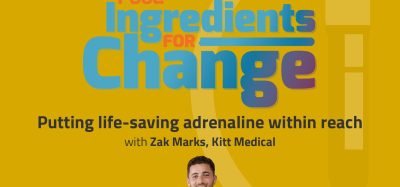Study finds food insecurity may increase cognitive decline
- Like
- Digg
- Del
- Tumblr
- VKontakte
- Buffer
- Love This
- Odnoklassniki
- Meneame
- Blogger
- Amazon
- Yahoo Mail
- Gmail
- AOL
- Newsvine
- HackerNews
- Evernote
- MySpace
- Mail.ru
- Viadeo
- Line
- Comments
- Yummly
- SMS
- Viber
- Telegram
- Subscribe
- Skype
- Facebook Messenger
- Kakao
- LiveJournal
- Yammer
- Edgar
- Fintel
- Mix
- Instapaper
- Copy Link
Posted: 21 February 2023 | Ria Kakkad (New Food) | No comments yet
The researchers found that food insecure older adults experienced cognitive declines more rapidly than their food secure peers.


Older adults living with food insecurity are more likely to experience malnutrition, depression and physical limitations that affect how they live. The Supplemental Nutrition Assistance Program (SNAP) is the largest federally funded nutrition-assistance programme in the US, and research has shown that SNAP has reduced hunger and food insecurity in the general population.
Little evidence is available, however, on how SNAP may impact brain ageing in older adults. To bridge this knowledge gap, researchers from Penn State University, US, investigated the relationship between food insecurity, SNAP and cognitive decline. They found that food sufficiency and participation in SNAP may help protect against accelerated cognitive decline in older adults.
In a new article published in The Journal of Nutrition, the researchers analysed a representative sample of 4,578 older adults in the US using data from the US National Health and Aging Trends Study, 2012-20. Participants reported their experiences with food insecurity and were classified as food sufficient or food insufficient. The SNAP status was defined as SNAP participants, SNAP-eligible nonparticipants and SNAP-ineligible nonparticipants. The researchers found that food insecure adults experienced cognitive declines more rapidly than their food secure peers.
The researchers identified different trajectories of cognitive decline using food insufficiency status or SNAP status. Rates of cognitive decline were similar in SNAP participants and SNAP-ineligible nonparticipants, both of which were slower than the rate of SNAP-eligible nonparticipants. The greater cognitive decline rate observed in the food insecure group was equivalent to being 3.8 years older, whereas the greater cognitive decline rate observed in the SNAP-eligible nonparticipant group was equivalent to being 4.5 years older.
Missed the news? Fish genome has potential to improve food security
READ MORE
“For an ageing population, roughly four years of brain ageing can be very significant,” Assistant Professor Munzi Na explained. “These results really point to the importance of food security for people as they age and the value that SNAP can have in improving people’s cognitive health as they age. We need to make sure that people have access to — and encourage them to use — the SNAP programme as they age.”
Future studies are warranted to investigate the impact of addressing food insecurity and promoting SNAP participation on cognitive health in older adults, said Na.
What could this mean for the food industry?
New Food brings you analysis on what this study could mean for the food industry…
Increased demand for healthy and affordable food
The study emphasises the need for healthier and more affordable food options for older adults. This could lead to increased demand for fresh fruits and vegetables, whole grains, lean proteins, and other foods that are associated with cognitive health.
Development of new products
Food manufactures may respond to the study by developing new products specifically targeted at older adults who are at risk of food insecurity and cognitive decline.
Marketing and labelling changes
Food manufactures may also modify their marketing and labelling to highlight cognitive health benefits of certain foods or use language that appeals to older adults who are worried about cognitive decline.
Increased advocacy for food security programmes
The study may also generate increased advocacy for food security programmes, such as SNAP, that help older adults access healthy food. Food companies may support initiatives that increase access to affordable and nutritious food, such as community gardens, farmers markets, and food banks.







